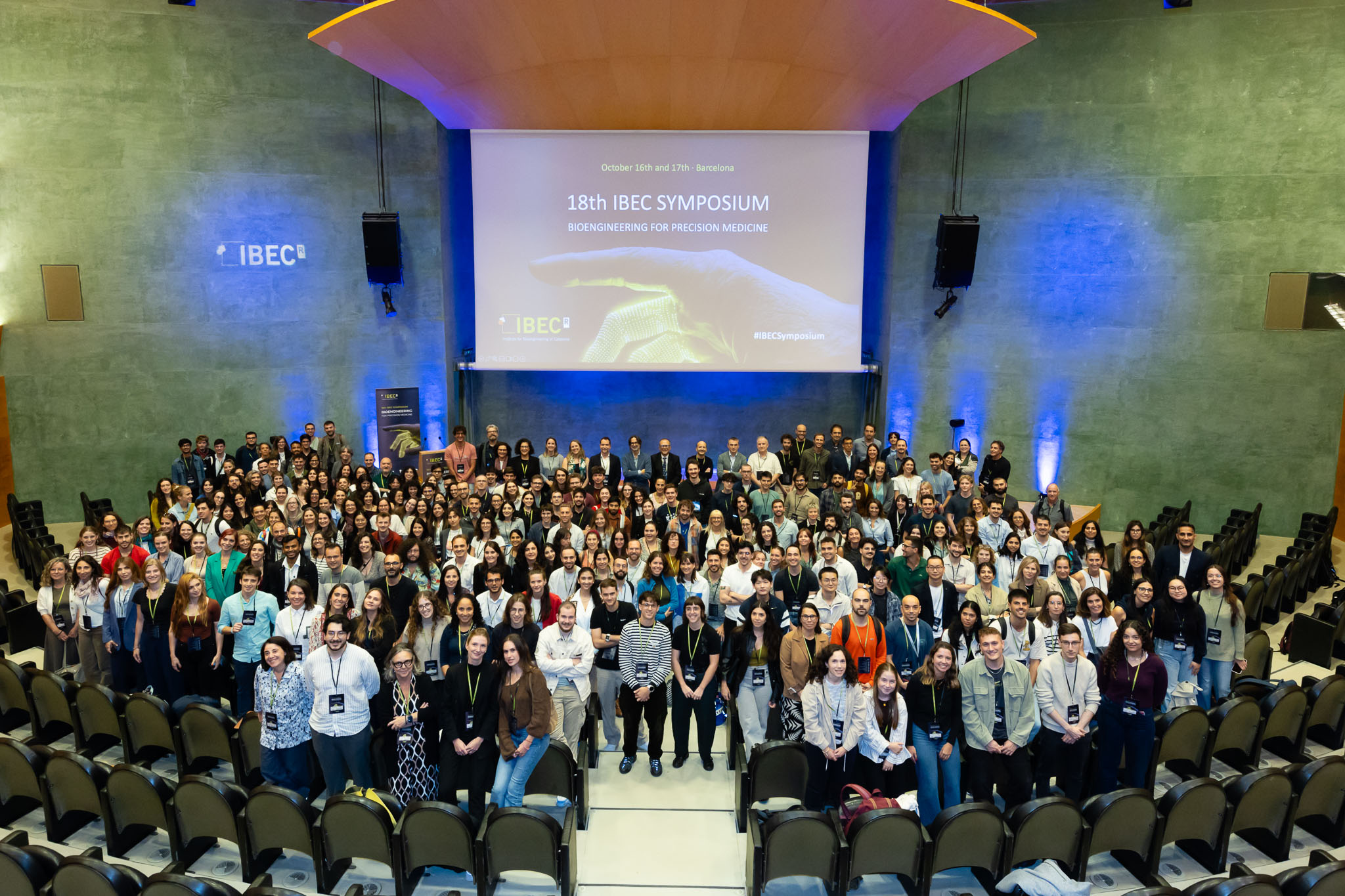Search Results for:
Business Breakfast. Challenges and Opportunities in the development of Advanced Theraphy Medicinal Products (ATMPS)
On November 6th, ClarkeModet, in collaboration with IBEC and EIT Health, will host an event focused on the current landscape of the Advanced Therapies sector, exploring its main challenges and … Read more
Laboratory Assistant at the Molecular and Cellular Neurobiotechnology Group
Ref: LA-TR // Deadline: 28/10/2025
4th edition EMBL-IBEC Conference Egineering Multicellular Systems
EMBL and IBEC aim to contribute to the discussion on challenges and opportunities in the expanding field of engineered multicellular systems. Recent breakthroughs in stem cell biology, organ-on-chip assays, 3D bioprinting, and … Read more
Innovations in High-Plex, Single-Cell and Spatial Targeted-Proteomics
In a joint effort to advance proteomics research, Standard BioTools and the Institute for Bioengineering of Catalonia (IBEC) are proud to present the symposium “Innovations in High-Plex, Single-Cell and Spatial Targeted-Proteomics”, … Read more
Bioingeniería para la medicina de precisión en el 18º Simposio del IBEC
El 18º Simposio anual del IBEC se centró en ‘Bioingeniería para la Medicina de Precisión’, una de las áreas clave de aplicación del IBEC. Fueron cerca de 300 las personas asistentes al evento, entre las que se encontraba personal investigador local e internacional. Un ambiente multidisciplinar en el que expertos y expertas de otros centros y la propia comunidad del IBEC tuvieron la oportunidad de presentar sus proyectos e intercambiar conocimiento.
Predoctoral Researcher at the Nanoprobes and Nanoswitches Research Group
Ref: Phd-GM // Deadline: 27/10/2025
Research in Training at the Molecular and Cellular Neurobiotechnology Group
Ref: RT-TR // Deadline: 27/10/2025
Postdoctoral Researcher at the Molecular Imaging for Precision Medicine Research Group
Ref: PD-IM // Deadline: 27/10/2025


